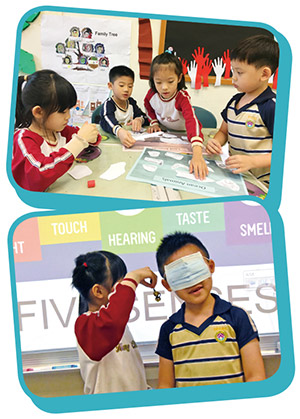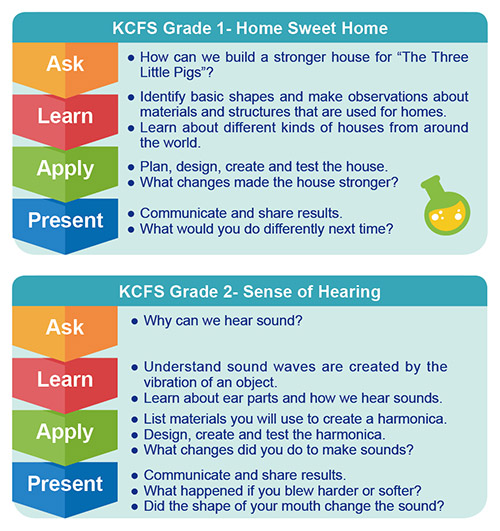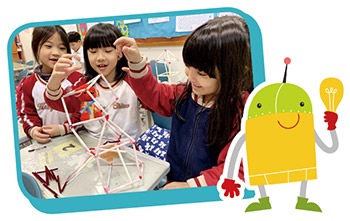
Wishing You Luck in the Year of the Pig
國際處主任 賴國宜
This semester we implemented our STEM based program, Kang Chiao Future Skills, to lower grades. By tapping into young children's natural curiosity about the living world and encouraging them to investigate and ask questions, we are successfully engaging our young learners with STEM. Ms. Amber Chen elaborates how teachers blend math and science in our KCFS program by using a STEM approach.
Signs and symbols are everywhere and it's important to understand their meanings. Our lovely grade ones analyzed the different signs that they see in their daily lives. To take the project further, teachers challenged the students to create signs to make our school a safer place. Have a look at the students' work and you will be amazed at how thoughtful and creative they are.
It's January and that means the winter vacation will start soon. I would like to wish you and your family a safe and happy holiday.
本學期我們將結合STEM教育理念的「康橋未來技能課程」延伸到低年級,孩子們天生的好奇心和喜歡動手操作的天性,讓結合科學、數學、工程和科技概念的課程大受歡迎,從Ms. Amber Chen的文章,您可以進一步了解,透過生活化的主題,教師如何引導孩子實際體驗原本抽象的科學、數學甚至工程概念。
我們的生活中充滿了符號和標誌,如何解讀抽象的符號對一年級的孩子是一種挑戰,卻也像猜謎語般有趣味,藉著分享大家在生活中觀察到的標誌,孩子們體認到設置標誌的意義和用途,最後還學以致用,討論如何在校園中增設標誌提醒大家注意安全。邀請您一起來欣賞他們充滿童趣的標誌設計,您將發現孩子們的巧思和創意無限。
真難想像一學期又將結束,希望大家都能有個愉快充實的寒假,喜迎豬年,闔家歡樂,諸事順利。

~ Amber Chen
English Teacher, International Department

Extending KCFS to Lower Grades
STEM is an important future trend in education. It stands for science, technology, engineering, and math. This year KCIS expanded our STEM based program, Kang Chiao Future Skills, to our curriculum in lower grades. In lower grades, we focus on the basic concepts of science and math through interdisciplinary application. We provide hands-on experiences to engage students and equip them with observation, problem solving, creative and collaborative skills.
The Learning Process
Lower grade students are full of curiosity, eager to explore and invent. When we start each topic, we follow the design teaching stages—Ask, Learn, Apply, and Present. In the “Ask” stage, students are presented with a big question related to their life experience. Asking the right question motivates students and stimulates investigation. Then, students “Learn” concepts and skills through specific hands-on experiences and experiments. Students are able to visualize abstract concepts and follow instructions through practice. Next, students “Apply” their knowledge and skills to real-world challenges. They plan and create their ideas as a team. After testing their ideas, they discuss how to improve them. Finally, students “Present” their solutions and get feedback. When sharing, students realize that it is okay to fail when they are taking new risks. They come to see failure as a means to future success.
Here are two examples from grades 1 and 2.

Expectations for Future Skills

Exposing students to STEM activities at an early age today sets a foundation for higher learning tomorrow. Developing skills in lower grades prepares students for projects taught in upper grades. The KCFS program provides authentic opportunities to solve real world problems. Students build a love for exploring and develop a passion for creating.

![]() 全文下載)
全文下載)